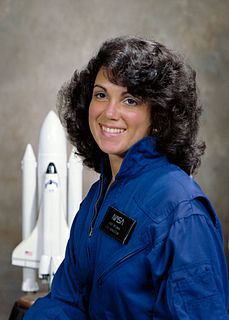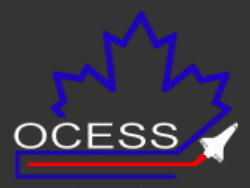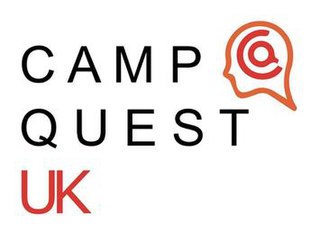
The Space Telescope Science Institute (STScI) is the science operations center for the Hubble Space Telescope (HST) and for the James Webb Space Telescope (JWST). STScI is located on the Johns Hopkins University Homewood Campus in Baltimore, Maryland and was established in 1981 as a community-based science center that is operated for NASA by the Association of Universities for Research in Astronomy (AURA). In addition to performing continuing science operations of HST and preparing for scientific exploration with JWST, STScI manages and operates the Mikulski Archive for Space Telescopes (MAST), the Data Management Center for the Kepler mission and a number of other activities benefiting from its expertise in and infrastructure for supporting the operations of space-based astronomical observatories. Most of the funding for STScI activities comes from contracts with NASA's Goddard Space Flight Center but there are smaller activities funded by NASA's Ames Research Center, NASA's Jet Propulsion Laboratory, and the European Space Agency (ESA). The staff at STScI consists of scientists, spacecraft engineers, software engineers, data management personnel, education and public outreach experts, and administrative and business support personnel. There are approximately 100 Ph.D. scientists working at STScI, 15 of which are ESA staff who are on assignment to the HST project. The total STScI staff consists of about 675 people in 2019.

Leave No Trace is a set of outdoor ethics promoting conservation in the outdoors. It consists of seven principles:
- plan ahead and prepare,
- travel and camp on durable surfaces,
- dispose of waste properly,
- leave what you find,
- minimize campfire impacts,
- respect wildlife,
- be considerate of other visitors.

Judith Arlene Resnik was an American electrical engineer, software engineer, biomedical engineer, pilot and NASA astronaut who died aboard the Space Shuttle Challenger when it was destroyed during the launch of mission STS-51-L. Resnik was the second American woman in space and the fourth woman in space worldwide, logging 145 hours in orbit. She was the first Jewish woman of any nationality in space. The IEEE Judith Resnik Award for space engineering is named in her honor.
"Where no man has gone before" is a phrase made popular through its use in the title sequence of the original 1966–1969 Star Trek science fiction television series, describing the mission of the starship Enterprise. The complete introductory speech, spoken by William Shatner as Captain James T. Kirk at the beginning of each episode, is:
Space: the final frontier. These are the voyages of the starship Enterprise. Its five-year mission: to explore strange new worlds. To seek out new life and new civilizations. To boldly go where no man has gone before!

Scott Douglas "Scooter" Altman is a retired United States Navy Captain, engineer, test pilot and former NASA astronaut. He is a veteran of four Space Shuttle missions. His fourth mission on STS-125 was the last servicing mission to the Hubble Space Telescope.
The idea of self-replicating spacecraft has been applied – in theory – to several distinct "tasks". The particular variant of this idea applied to the idea of space exploration is known as a von Neumann probe, after being conceived by mathematician John von Neumann. Other variants include the Berserker and an automated terraforming seeder ship.

Thomas Otten Paine, was an American engineer, scientist, and advocate of space exploration, was the third Administrator of NASA, serving from March 21, 1969 to September 15, 1970.

Michael James "Mike" McCulley, , is a retired American naval officer and aviator, test pilot, metallurgical engineer, former NASA astronaut, and was the first submariner in space.

Richard Alan Searfoss was an American aviator who was United States Air Force colonel, NASA astronaut and test pilot.
The Museum of Science & Industry (MOSI) is a not-for-profit science museum located in Tampa, Florida.

Space Camp is an educational camp in Huntsville, Alabama, on the grounds of the U.S. Space & Rocket Center museum at NASA's Marshall Space Flight Center. It provides residential and educational programs for children and adults on themes such as space exploration, aviation and robotics. The camp is run by a state government agency, the Alabama Space Science Exhibit Commission. More than 900,000 campers have graduated since 1982, including several who became astronauts.

The Ottawa-Carleton Educational Space Simulation (OCESS), unofficially known as "Spacesim", is a student-run organization within the Ottawa-Carleton District School Board that operates primarily out of Lisgar Collegiate Institute. The chief activity of the club is to educate youth about the sciences with relation to space.

The Florida Aquarium is a 501(c)(3) not-for-profit organization, publicly operated institution located in Tampa, Florida, United States. It is a large scale, 250,000-square-foot (23,000 m2) aquarium and is accredited by the Association of Zoos and Aquariums. This means they are a leader in conservation and education, supporting programs for wildlife and having a strong educational component in the forms of summer camps, school trips, etc. The facility is home to more than 7,000 aquatic plants and animals from Florida and all over the world. The facility is located in the Channel District of Downtown Tampa. The Florida Aquarium opened in March 1995 as a privately funded entity and became a public-private partnership when the city of Tampa assumed responsibility for its debt in 1999. On April 18, 2012, the AIA's Florida Chapter placed the Florida Aquarium on its list of Florida Architecture: 100 Years. 100 Places.

MoonBaseOne is an educational video game. It was developed by American company WeCreateGames.com, and was published by Federation of Galaxy Explorers. Posted for free download on July 15, 2007, MoonBaseOne was developed as an educational tool to be used at FOGE summer camps to teach kids about space.

Irvine Nature Center is a nature center in Owings Mills, Maryland. The center, which is set on 210 acres (0.85 km2) of land in the Caves Valley Historic District, includes a 17,200-square-foot (1,600 m2) green exhibit hall, classrooms, outdoor classroom, amphitheater and trails. Irvine has 80,000 visitors a year.
Space Camp Spain is the only summer camp devoted for youths aged 7–12 in Spain hosted at Vilanova i la Geltrú. Participants are from all over Spain and official languages are Spanish and English.
Nicholas Eftimiades is an American government official, author, and educator best known for his work Chinese Intelligence Operations (1994). He currently resides in the Tokyo area.

Camp Quest UK (CQUK) is a British secular humanist summer camp which aims to promote critical thinking in children while providing a residential camping holiday to children in the United Kingdom. The camps are designed to encourage children to 'Question, Understand, Explore, Search and Test' and often use a group of philosophical techniques called Philosophy for Children (P4C) to develop reasoning and creative thinking skills.

Abigail "Abby" Harrison popularly known as Astronaut Abby, is an American author, scientist, internet personality, public speaker, science communicator and advocate for STEAM education, particularly in the area of the United States space program.

The Mars Generation is an American internationally active, non-governmental nonprofit organization involved in public outreach and advocating for human space exploration and science, technology, engineering, and mathematics (STEM) education.















